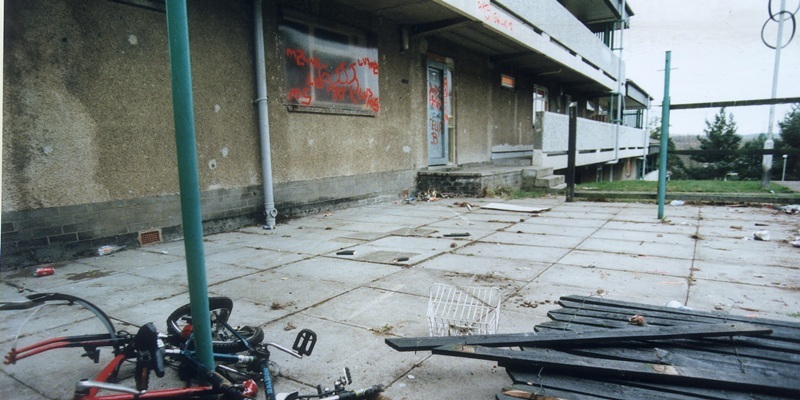Cutting investment in housing in poor areas hits the education and long-term employment opportunities of the children there, according to a report co-authored by a St Andrews University academic.
“The prospect for British cities for the foreseeable future is that child poverty will increase, and housing investment to address poor housing conditions will be markedly slowed,” warn Professor Duncan Maclennan, of the university’s centre for housing research, and Dr Tony Sullivan, of Newhaven Research.
They say Scotland must give higher priority to social housing and stop considering it “an expensive luxury.”
The study was carried out for the Chartered Institute of Housing Scotland and the resulting report Raising The Game, The Economic Case For Housing urges greater appreciation of the role played by social housing in boosting health, education, jobs and the economy.
Housing policy has a part to play in making Scotland wealthier, fairer, healthier, safer, smarter and greener, says the report.
“Across the Scottish Government, its agencies and local authorities, thinking on housing remains largely separated from economic policy thinking,” say the authors.
“We hope this paper will encourage a rethink about the wider policy role of housing.”
They continue, “In spite of Scottish Government pronouncements to the contrary, housing is accorded low priority in the current political firmament.”
They add, “We should stop treating council and association housing as if it were simply an expensive social luxury to be provided to salve the national conscience,” the report continues.
“We should see this instead as forms of tenure and qualities of homes that fashion new capabilities for the disadvantaged to improve their labour market position.
“With housing facing a new public spending context, changing household demographics (such as more 20-35 year olds renting for longer) and a new imperative on environmental sustainability, it needs a new economic story as well.”
